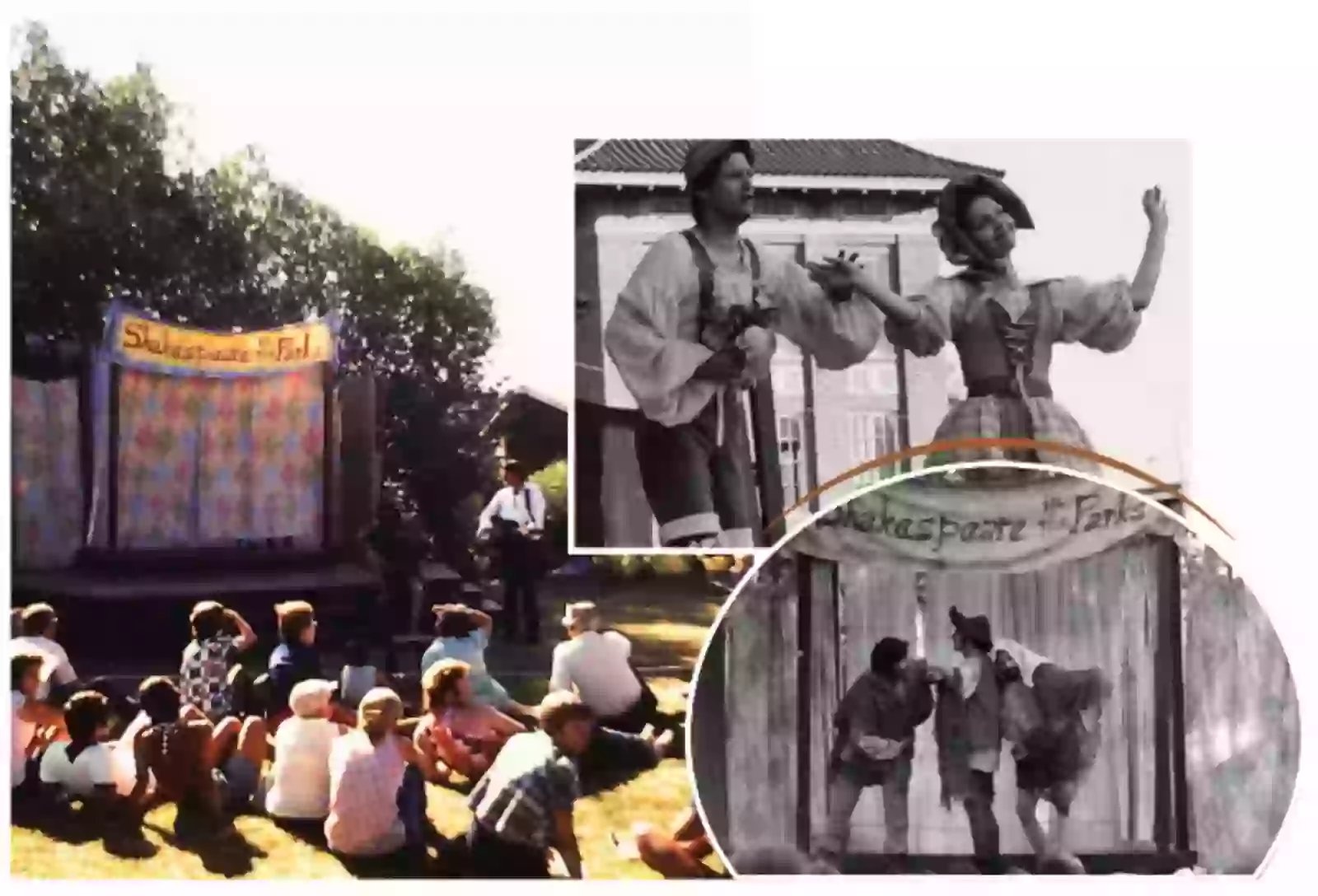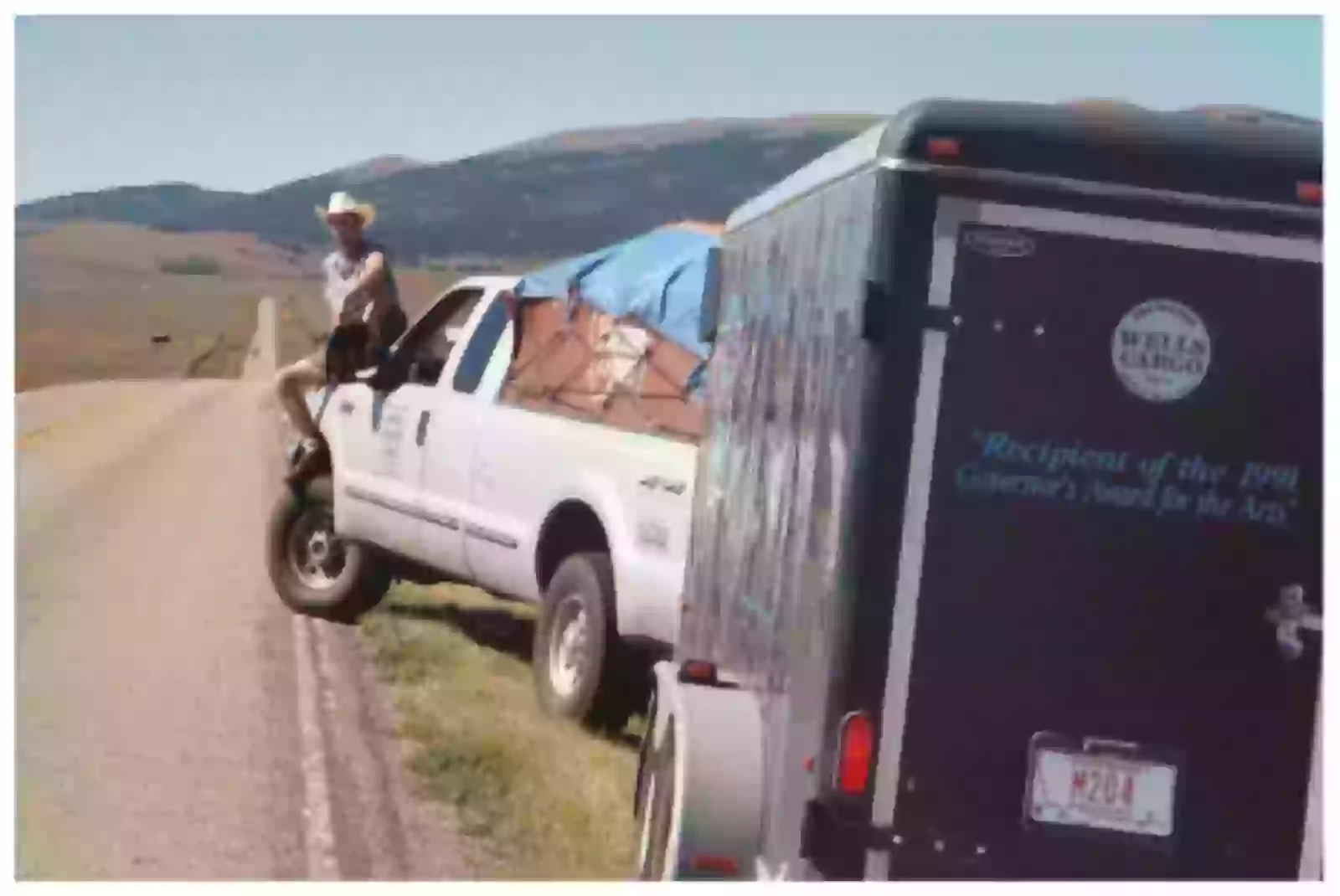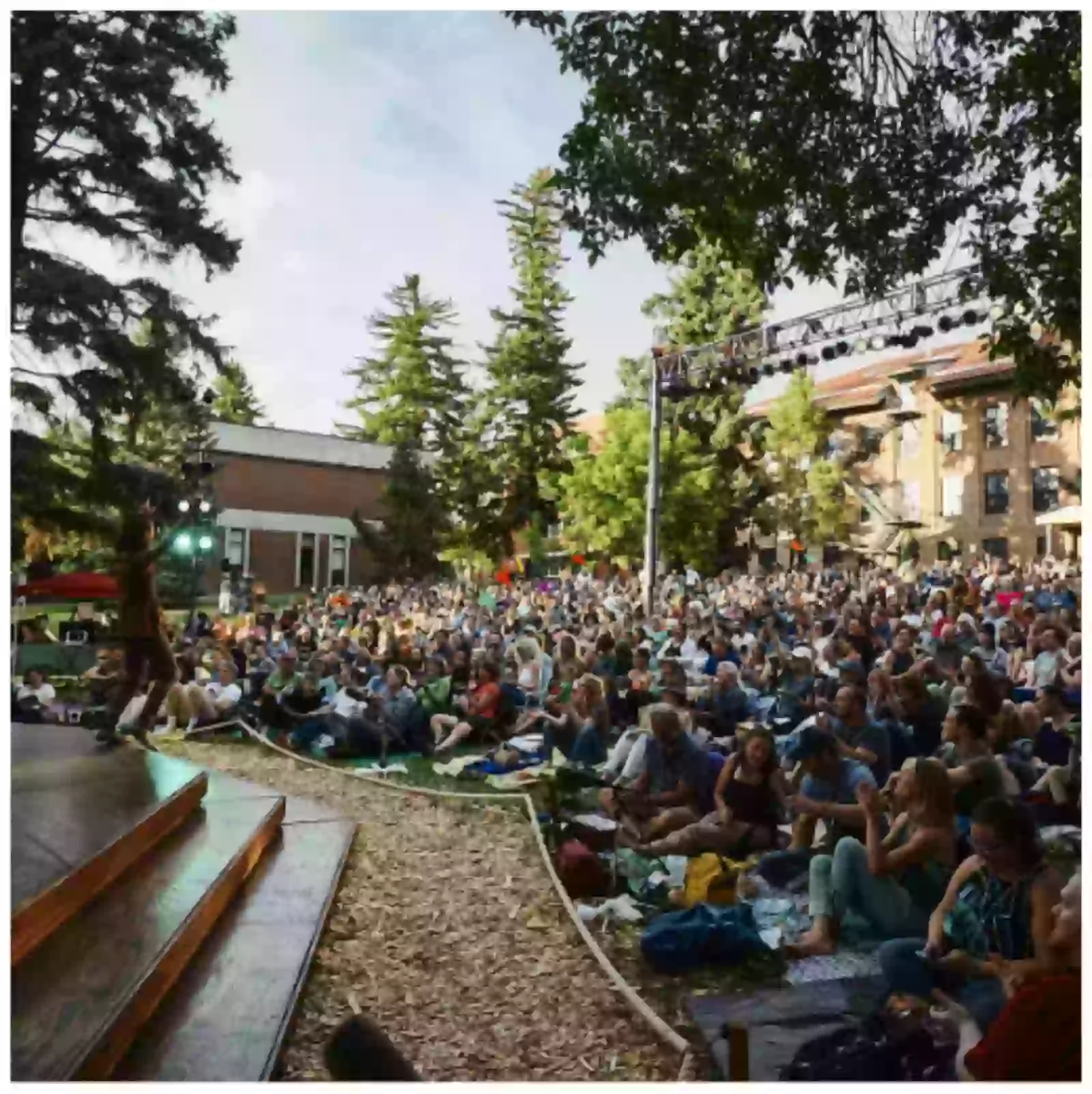![mountain graphic page break]()
Much of this expansion of reach and deepening in mission happened while our beloved Joel Jahnke was the artistic director. Joel led the company for almost 34 years, overseeing growing the tour to more cities, bringing in world class actors and directors and shepherding the innovative education programs into a vital part of the company.
Joel was my boss when I joined the company in 2003 for the most impactful and important job I have ever had. I had seen the company while working as a wildlife biologist in Red Lodge. It’s a long story how you go from chasing elk in the Beartooths to carrying a spear at Chicago Shakespeare, but that’s where they found me and took a chance on me as a young and epically green actor.
Kevin Asselin was one of the company managers on that tour too, along with an ensemble of actors, designers, directors, stage managers, technicians, and host families and audience members across the region that changed my life.
And my story is not that unique. Most folks have a transformational experience like that. Across all the years, across all the artists, it comes back to this last best place and some of the best folks in the world who make a commitment to stories and imagination, and art, and hope, in a time when it is so urgently necessary.
There are people and families across the state that remain meaningful parts of my life to this day. Twenty years since my first tour, I now have former students joining the company.
When they ask me what they should expect, I share that telling stories is a privilege and a service, and doing it for this company means you are an ambassador for something bigger than yourselves. If you let yourself be open to this place, these people, you will be fundamentally changed because of their quality and grit and good heartedness.
And like Joel, I would struggle keeping down the tears because of the quiet knowing of how powerful the experience of meeting you all each evening in your parks or each morning in your schools would truly be.



